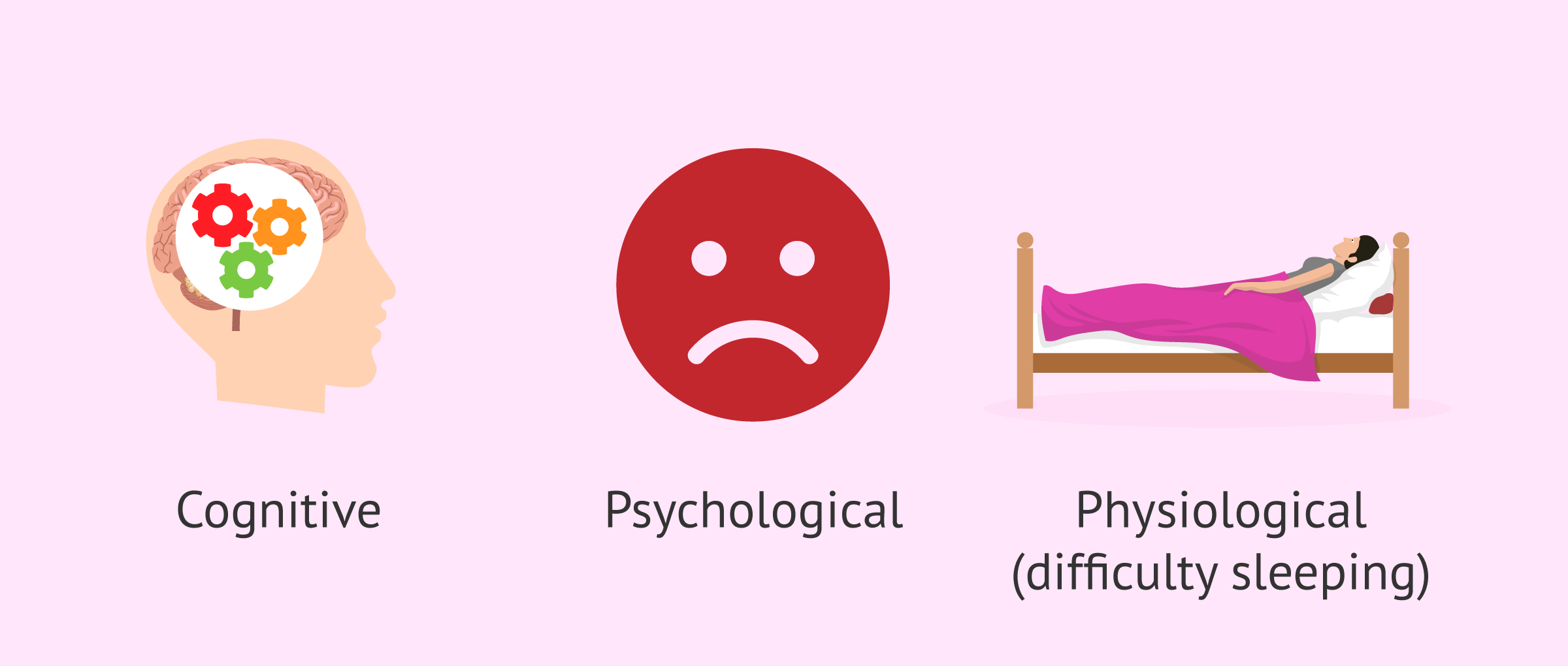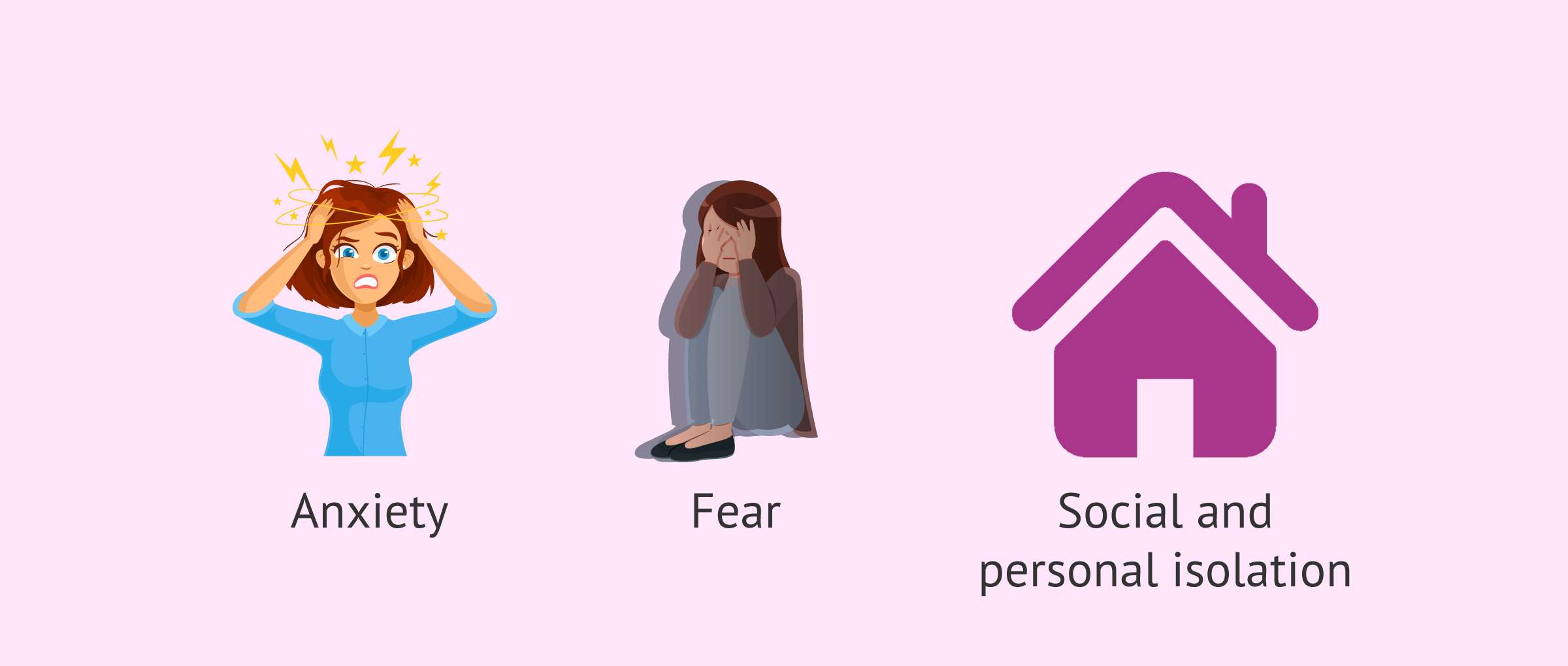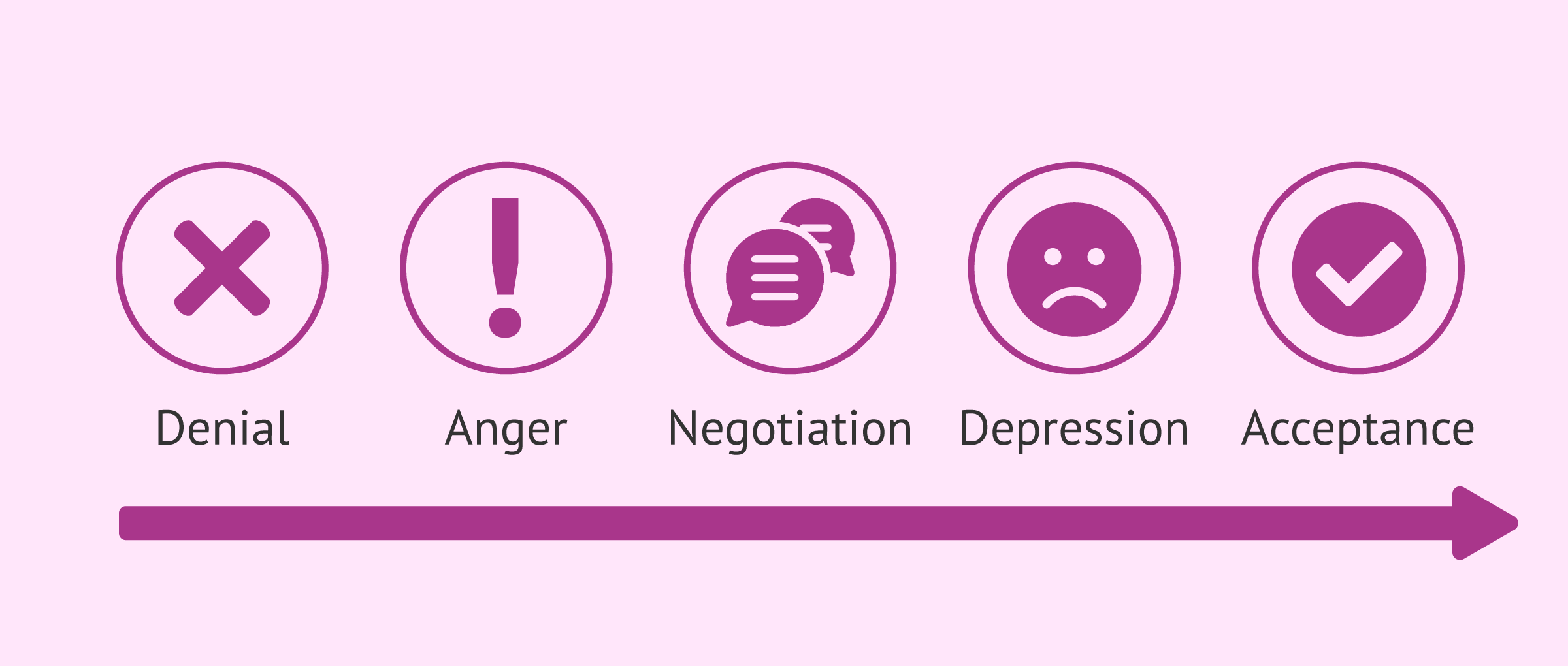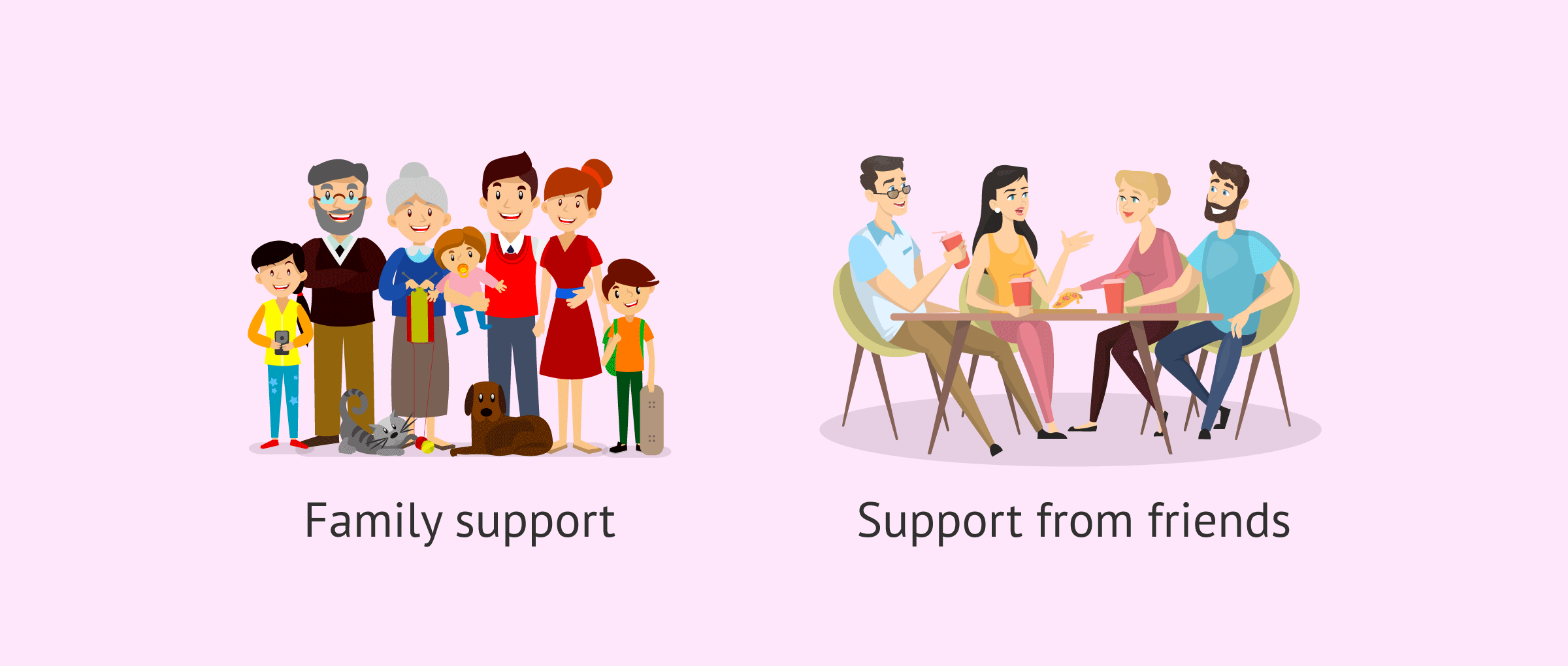Wanting to have a child and having difficulties in doing so generates a great impact and discomfort in people. Thanks to fertility treatments it is possible to achieve the desired pregnancy, but the process of assisted reproduction is complicated and can alter several areas of patients' lives.
In these cases, psychological assistance can help and provide different tools that favor both physical and emotional well-being for all these people.
Provided below is an index with the 6 points we are going to expand on in this article.
- 1.
- 1.1.
- 1.2.
- 1.3.
- 1.4.
- 2.
- 3.
- 3.1.
- 3.2.
- 3.3.
- 3.4.
- 3.5.
- 3.6.
- 4.
- 5.
- 6.
How does infertility affect daily life?
Generally, patients who resort to assisted reproduction treatments have been trying to fulfill their dream of becoming parents for some time. For this reason, they often arrive at the process emotionally affected. A diagnosis of infertility causes a change in the life project that a person has planned. Patients must adapt their life plan and face the fact that reality will be different from what they had planned.
This can produce alterations in different areas:
- Cognitive
- problem-solving skills as well as coping mechanisms are overwhelmed.
- Psychological
- the initial state of emotional shock is preceded by feelings of confusion, denial, fear, sadness, guilt, excitability and restlessness.
- Physiological
- higher levels of stress and difficulty sleeping are observed.
It is important to know that not everyone will face or cope with the situation in the same way, and this does not mean that their behavior is more or less appropriate. Communication, as well as introspection about feelings, is key both with oneself and with one's partner.
Emotions
This is one of the most affected areas in patients. People face an unknown situation in a vulnerable way and without knowing what will happen. It is totally normal to have negative feelings and even question whether you are doing the right thing.
Far from helping, these thoughts often lead to a cycle in which we feel worse and worse, see the future darker and more doubtful about whether we will achieve our goal.
The most frequent emotions or feelings in assisted reproduction patients are the following:
- Loss of self-confidence and this has repercussions on your
self-esteem. - Anxiety, uncertainty and doubts due to the absence of information and guarantees about being parents.
- Fear of not achieving parenthood, of not regaining control over one's own body.
- Social and personal isolation.
- Guilt and disappointment in one's own body, it is common to blame oneself and think that the body has failed to achieve gestation.
- Depression and sadness, inability to lead a normal life.
It is essential to learn to identify these negative thoughts, discuss them and find other more rational options. All this can be achieved with psychological counseling.
Grief
Grieving is a normal and adaptive process that people undergo when faced with a loss. Within the assisted reproduction process we may encounter this grief at different moments of the process (the news of infertility, miscarriage/implantation failure, the need to use gamete donation...).
Like any process, grief has a series of stages common to all these situations:
- Denial
- different defenses are used to try to deny the painful reality, second opinions are often sought. Thoughts such as "this can't happen to me, there must be some mistake..." tend to appear
- Anger
- feelings of incomprehension, frustration, injustice appear. It is essential to identify anger as something normal and manage it in a healthy way so that it is as harmless as possible.
- Negotiation
- feelings of lack of control and the need to recover it, to return to the ideal situation, negotiating with oneself, with one's partner or even with a spiritual source.
- Desperation
- this phase is the center of grief, with predominant feelings of abandonment, sadness, desolation and guilt. It is important to keep in mind that you are not responsible for the situation you are in.
- Acceptance
- once the diagnosis of infertility is accepted, emotions are managed and expressed, one can begin to organize and approach resolution. The steps to follow and objectives look different, it does not mean that the problem goes away, but that it can be managed in a healthy way.
The phases do not always occur in order, nor does everyone go through them all; indeed, a person may experience them repeatedly. The most important thing is not to get stuck and to work through the feelings in order to reach the acceptance phase as soon as possible.
The objective is the elaboration of healthy grief, that is to say, to recognize emotions, to give importance and space to grief, and to facilitate tools to face the loss, both present, and future.
Physical involvement
When the body is subjected to high levels of stress or discomfort, it transforms those concerns into physical symptoms. This is dangerous, as it is important to maintain good health in the face of assisted reproduction techniques.
Assisted procreation, as any other medical treatment, requires that you rely on the professionalism of the doctors and staff of the clinic you choose. Obviously, each clinic is different. Get now your Fertility Report, which will select several clinics for you out of the pool of clinics that meet our strict quality criteria. Moreover, it will offer you a comparison between the fees and conditions each clinic offers in order for you to make a well informed choice.
Assisted reproduction treatments involve the administration of drugs to increase egg production. These drugs cause an increase in hormone levels in women, which contributes to emotional instability. Specifically, stress in women alters cortisol levels, a hormone is colloquially known as the stress hormone. All this instability and hormonal ups and downs can influence and even hinder the achievement of pregnancy.
Family and friends
The accompaniment provides help to manage emotions and go through the expectations, which are many, as well as learning to navigate in the absence of certainties and the lack of control.
Family and friends can be important supportive figures for patients, but this is not always the case. Normally, couples perceive that "only they know what it feels like", feelings of guilt and a sense of responsibility towards family members for not being able to give them the child they had hoped for.
We can also highlight the shame of perceiving themselves as different and feeling failed, as well as anger and envy in terms of identification with others, especially with family and friends who achieve the much-desired pregnancy.
The couple
Approximately half of the couples who undergo assisted reproduction treatments state that the process has brought them closer together, they have found communication tools, and have had fewer arguments.
However, patients recognize the difficulty of the process, a rupture of the couple's intimacy is generated (constant tests, monitoring of sexual life, medication...) and they observe different ways of managing the situation.
The coping styles of men and women differ, with women being more likely to externalize their feelings and manage them. Men, on the other hand, focus on non-treatment aspects to mask feelings and not have to deal with them.
The role of the partner or companion in this fertility process is fundamental and can be a personal challenge in some cases.
Sometimes, the man feels like a mere observer, while his partner has to deal with the physical part of the treatment.
Feeling that you do not participate or that your only function is to provide semen, can trigger feelings of anxiety, anguish, frustration, isolation, sadness, lack of control. On the other hand, when a man is diagnosed with a fertility problem, feelings of guilt, failure, and helplessness stand out.
Psychological support during treatment
Once the couple faces the fact that they need help in order to have a child and resort to assisted reproduction treatments, they must accept that during the treatment they will go through different phases. This can cause added stress that does not provide any benefit, rather, it decreases the likelihood of achieving pregnancy.
If at any time during fertility treatment patients feel that they cannot manage emotionally, it is recommended that they talk to the clinic staff. Many centers have specialists in psychology or can put you in contact with professionals in this field.
Each diagnosis and disease that leads to the need for assisted reproductive treatments has its differences. However, there are studies that determine that anxiety, depression, and stress are common to a large number of infertility diagnoses, particularly affecting the development and achievement of assisted reproduction treatments.
The Spanish Fertility Society (SEF) estimates that between 25% and 65% of people who seek assisted reproduction have some significant psychological symptoms, such as anxiety, stress, anger, guilt... The objective of psychological assistance is to reduce and prevent emotional distress throughout the process, to provide psychological tools for adaptive coping strategies at each stage, and to offer follow-up and support throughout the process.
If you want more information about this topic we recommend you to visit: Psychological support to the patient.
FAQs from users
What is psychological support during fertility treatment?
Psychological support throughout the assisted reproduction process helps the well-being of the woman and/or couple. In addition, psychologists help to reduce the negative effects of situations that generate discomfort, as they provide a response at each stage of the reproductive process.
Read more
Does stress affect embryo implantation?
Embryo implantation is a complex process in which several factors are involved. It is a dialogue that takes place between the transferred embryo and the properly prepared endometrium at that time. Most of the research on the interaction between emotional stress and infertility over the last 30 years has shown that, although infertility causes stress, stress does not necessarily cause infertility. However, acute and chronic stress can reduce the success rate of fertility treatments.
Stress acts by different mechanisms and its correct assessment requires a collaboration between gynecology, biology and psychology. The available evidence determines that the fertility treatment protocol should include stress management and stress reduction as factors of major importance.
For this purpose, there are various psychological methods such as cognitive behavioral therapy or adequate training in relaxation techniques that help to reduce stress levels. Therefore, it is important to have an initial psychological assessment to evaluate stressors that may interfere with the reproductive health of both members of the couple, whether to initiate assisted reproduction treatment, or in any couple with infertility, whatever its origin.
How can I help my partner in the assisted reproduction process?
The assisted reproduction process generates an unfamiliar and tense situation in patients. The figure of the couple is a fundamental pillar during the process and sometimes it is difficult to find the right words to help or reinforce the other person's mood.
This support is personal and individual so the key is in communication, it is necessary to ask what they need, it can be a simple question or interest in him/her enough to make him/her feel that he/she is there, a hug or a token of affection.
How important is psychological support in fertility treatment?
Jana Bechthold, gynaecologist at the Tambre clinic in Madrid, talks about the importance of psychological support in assisted reproduction treatments:
A reproductive treatment can be emotional, stressful and some patients even suffer from anxiety or depression, so it is very important to have a good psychological support. We know that also mental health is related or connected to fertility, so we know that a good psychological support can even increase the fertility rates.
What psychological problems can bring premature ovarian failure?
Women with early menopause often have trouble accepting this new situation, especially young girls who have not yet had children. The risk of anxiety and depression is very high.
Therefore, it is very important that these women receive adequate information to assimilate it and, if necessary, to resort to psychological support as well.
I want to get pregnant fast after a miscarriage, is it possible?
Although the WHO recommends waiting about six months to seek pregnancy again, there are numerous studies that indicate that the sooner the pregnancy is resumed, the lower the chances of suffering a new miscarriage or other gestational complications.
The WHO recommendations are based fundamentally on emotional aspects, since miscarriage is a hard trauma and it is convenient to have overcome this grief and be prepared to face the new pregnancy with illusion. On the other hand, the studies that indicate that it is not necessary to wait to conceive again after the abortion are based on physiological aspects of the female body.
In any case, it is important to consult your doctor. Many specialists recommend waiting an average of two menstrual periods before trying again. However, this depends very much on the type of miscarriage that has occurred and the consequences of the miscarriage both physically and emotionally.
Recommended readings
As mentioned above, the support of your partner during the process is essential. If you would like to learn more about the importance of your partner's role during treatment, in this article you will find some key points: The role of the couple in Assisted Reproduction techniques.
Recurrent miscarriages carry a lot of emotional distress and psychological support may be necessary during the grieving and grieving process. Thinking about trying to get pregnant again can be painful if the grief has not been properly managed. If you would like to read more about the fertility process after the abortion I recommend you read: Fertility after abortion: Is pregnancy possible?
In addition, you can learn about the causes of recurrent miscarriage and treatment at the following link: What is recurrent miscarriage - Causes, diagnosis, and treatment.
We make a great effort to provide you with the highest quality information.
🙏 Please share this article if you liked it. 💜💜 You help us continue!
References
Carreño J. and Morales-Carmona F. Depression and anxiety in different periods of evolution of infertility. Perinatol. Play Hmm. 2000; 2:14-21. (see)
Heredia Carrasco, A. (2020). Psychological aspects related to assisted reproduction: from in vitro fertilization to gamete donation.
Moreno "Rosset, Carmen. Material of the course "Psychology and Reproduction: importance of psychological support in Assisted Reproduction. UNED, Spain. 2001
Ortega, M.P., & Mairal, J.B. (2016). Health-related quality of life in assisted reproduction processes. A review. EduPsykhé: Journal of psychology and educational psychology, 15(2), 113-129.
Morales, N. E. Á., Hernández, L. A., & Lafuente, M. E. R. (2019). Psychological well-being and trait-state anxiety in members of couples with primary infertility. Medmay, 26(1), 75-87. (see)
Giménez, V., Quirón, G. H., & Sebastián, S. (2007). Psychological evaluation in Assisted Reproduction units. Evaluation guides, advice, support and psychological intervention in Assisted Reproduction. Ibero-American Journal of Fertility and Human Reproduction, monographic number, 19-28.
Heredia, A., Jimena, P., & García-Retamero, R. IS PSYCHOLOGICAL CARE NECESSARY IN ASSISTED REPRODUCTION IN THE SSPA?.
Crespo Mirasol, E. (2015). Perceptions of women, couples and professionals during pregnancy, childbirth and postpartum after undergoing assisted reproduction techniques (Doctoral dissertation, University of Barcelona).
FAQs from users: 'What is psychological support during fertility treatment?', 'Does stress affect embryo implantation?', 'How can I help my partner in the assisted reproduction process?', 'How important is psychological support in fertility treatment?', 'What psychological problems can bring premature ovarian failure?' and 'I want to get pregnant fast after a miscarriage, is it possible?'.
Authors and contributors

More information about Cristina Algarra Goosman










I am in my third round of IVF and feel like my partner is very distant and cold, I am afraid and I think he is feeling the same way but I can sense a wedge between us. What should I do?
Hello Lara,
Problems with your partner are very common in couples that go thru assisted reproduction techniques, this is a time where uncertainty and negative feelings flourish and therefore communication is key. I recommend you sit and talk about all of these feelings (anger, nervousness, grief, and even uncertainty) with your partner, you will most likely discover he is also feeling the same or similar feelings, and due to lack of communication, you are both dealing with them separately.
This process is very hard psychologically and it is important to rely on your support group which is usually formed by family, friends, and your partner. Don´t feel ashamed of feeling what you are so natural feeling and reach out to a professional if you feel you need that extra support.
You´ve got this,
All the best.
Hello, I have been TTC for a couple of months, I know it is early and I am pretty young (28), but I can´t seem to manage in the TWW. Once I ovulate I start tracking all the symptoms and compulsively test for pregnancy even though I know the test wouldn´t turn positive until I miss my period. I don´t know how to manage this. Any tips?
Hello Dana,
The period from your ovulation or transfer until you can safely and accurately take a pregnancy test, known as the two-week wait, is usually an anxiety-filled time for most women. In order to control this anxiety and take care of your mental health, there are some guidelines you should follow.
First, it is important to keep living your life and doing the things you normally do, of course without hard physical work.
Then you should know the importance of waiting until you missed your period, or realistically 10 – 14 DPO where you can more accurately find out if you are pregnant or not. Taking tests beforehand can lead to false-negative and with that the negative emotions that fill your body and mind before a negative. Which is not healthy either for you or your baby.
Lastly, trying to hypervigilance every little change in your body can create stress on yourself and even make you feel symptoms that generally you wouldn´t be feeling, and even develop a psychological pregnancy, where you feel pregnant both physically and mentally but you are not.
Pregnancy is often delayed for months or even a year, a healthy 28-year-old woman with no other complications can have a chance of pregnancy of 25% each cycle up until 80% achieved after 1 year of trying to conceive.
If you feel you still can´t manage this period of time or want to talk to someone that can support you don’t hesitate on speaking to a professional psychologist.
All the best.